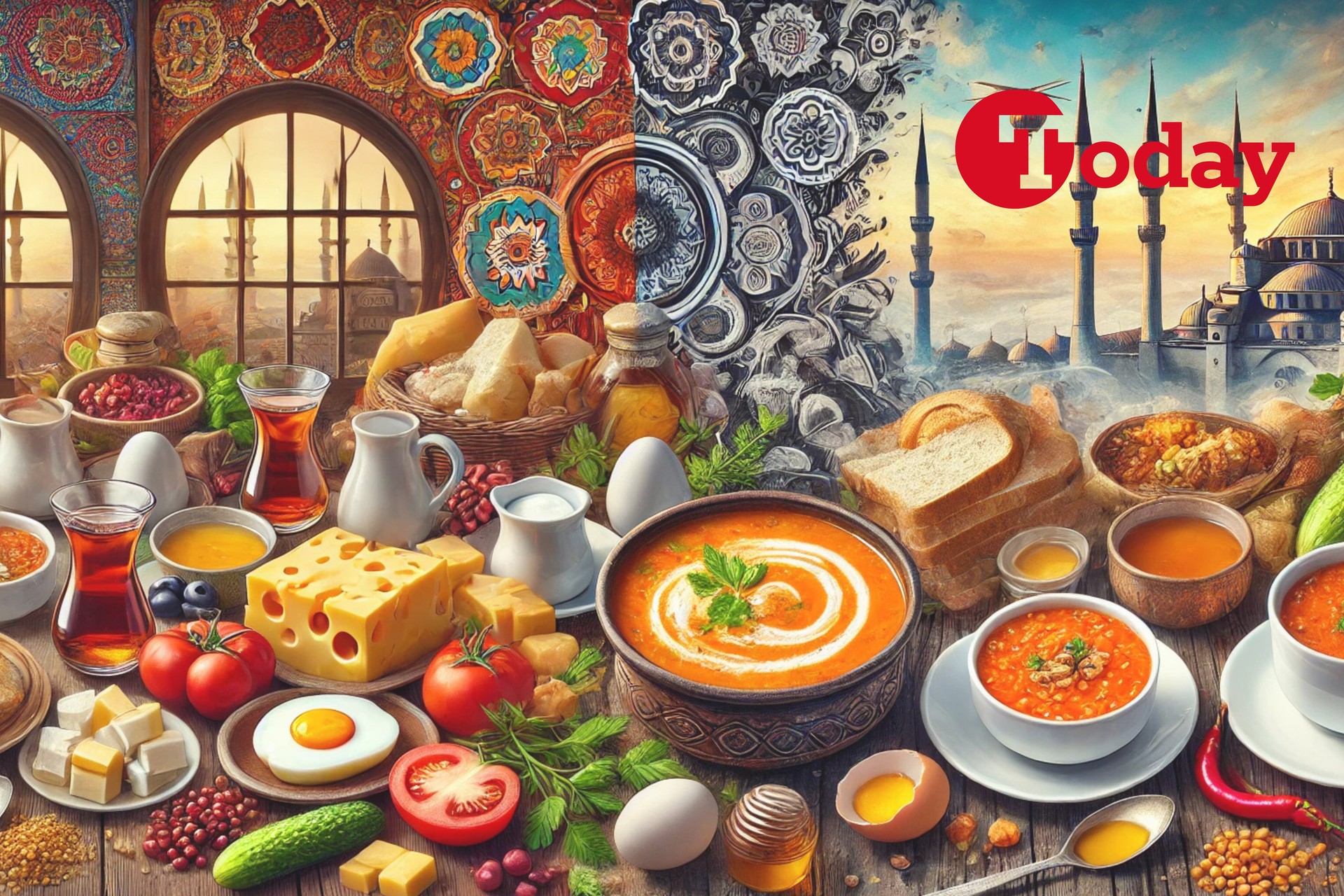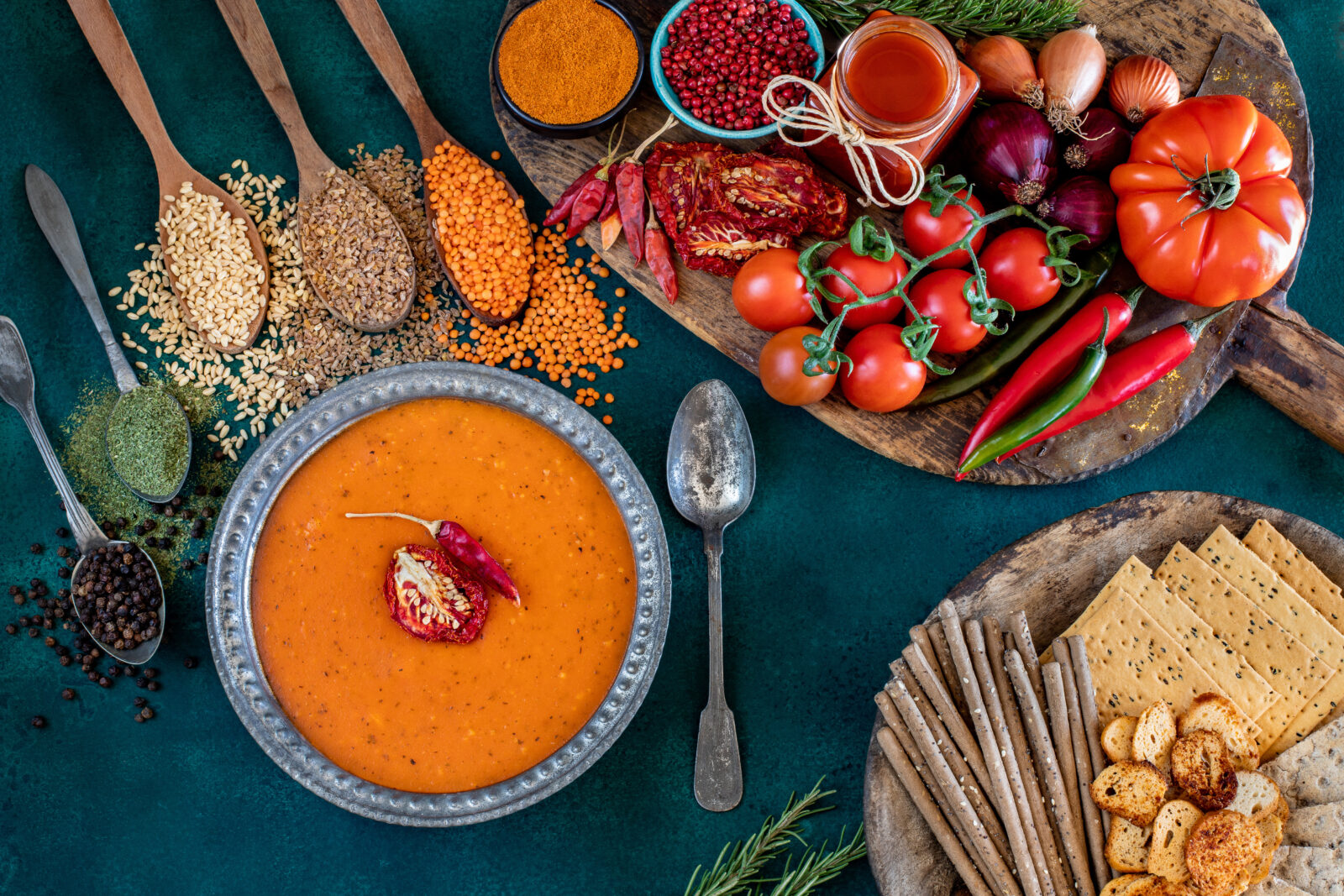
In Türkiye, the aroma of a steaming bowl of soup can warm the body and soul, symbolizing family, unity and hospitality. This ancient tradition, stretching back to Central Asia, has been a staple of Turkish cuisine for millennia.
While the modern "Turkish Serpme Kahvalti" (Turkish Mixed Breakfast) has gained global fame, soup has long held a special place in the hearts and tables of Turkish households.

Soup’s history can be traced back nearly 10,000 years. Archaeological finds, like a 2,400-year-old soup bowl unearthed in China, provide fascinating glimpses into this culinary art's origins. The English word “soup” derives from the Sanskrit root, meaning “good nourishment,” while the Turkish term "corba" comes from the Persian "shorba."
This etymology mirrors soup's dual identity: a mere appetizer in the West but a cornerstone of meals in the East.
Turks have crafted soups from simple ingredients for centuries, often naming them after their major components. Whether made with lentils, yogurt, or grains, these broths have nourished people across all social classes, from sultans to peasants.
The importance of soup in Ottoman cuisine owes much to the nomadic Turks in Central Asia. In medieval times, nomads prepared hearty, grain-based porridges, the likely ancestors of today’s diverse soups.
These traditions flourished during the Ottoman Empire, where soup became an integral part of daily life, consumed as a nutritious start to meals and as a standalone dish at any time of day.
The German traveler Dernschwam, who visited Istanbul in 1553, noted:
'Turks begin meals with rice soup made from mutton broth, often enhanced with lemon juice or vinegar, black pepper, and sometimes fresh bulgur. Even wild game is cooked simply, seasoned with salt and water before being added to soup.'
Dernschwam, 1553
This detailed observation highlights how soups reflected the Ottomans' resourcefulness and their fusion of simplicity with flavor.

While modern Turkish breakfasts are dominated by elaborate "serpme kahvalti" spreads, traditional breakfasts in many regions of Türkiye still feature soup. Its affordability, nutritional value, and simplicity have cemented its popularity across centuries.
Even today, roadside soup kitchens open before dawn to serve laborers and early risers, preserving this age-old practice.
Soup in Türkiye represents much more than nourishment. It embodies hospitality, togetherness, and resilience. From lentil soup (mercimek corbasi) to tripe soup (isikembe), each bowl tells a story of heritage and community.
As the debate continues over what defines a true Turkish breakfast, it’s clear that soup holds a timeless place in Türkiye’s culinary and cultural identity.
Famous chef Mehmet Yalcinkaya recently highlighted that in traditional Anatolian cuisine, there is no concept of breakfast as we know it today, with mornings instead beginning with a warm bowl of soup.
He explained that the practice of having soup in the morning is a much older tradition in Anatolia, with breakfast being a more modern development. This view sheds light on the region’s historical culinary habits, where soups like lentil or yogurt-based varieties were staples, offering nourishment and warmth at the start of the day, long before the rise of the popular "serpme kahvalti" breakfast spread.
The serpme/mixed breakfast may reign supreme in Instagram feeds, but soup is the unsung hero of Türkiye’s culinary legacy.
Steaming bowls of this ancient dish have connected generations, providing warmth and sustenance across time and culture. Whether at dawn or dusk, soup continues to define the essence of Turkish hospitality.
There are over 250 well-documented types of soups in Türkiye.